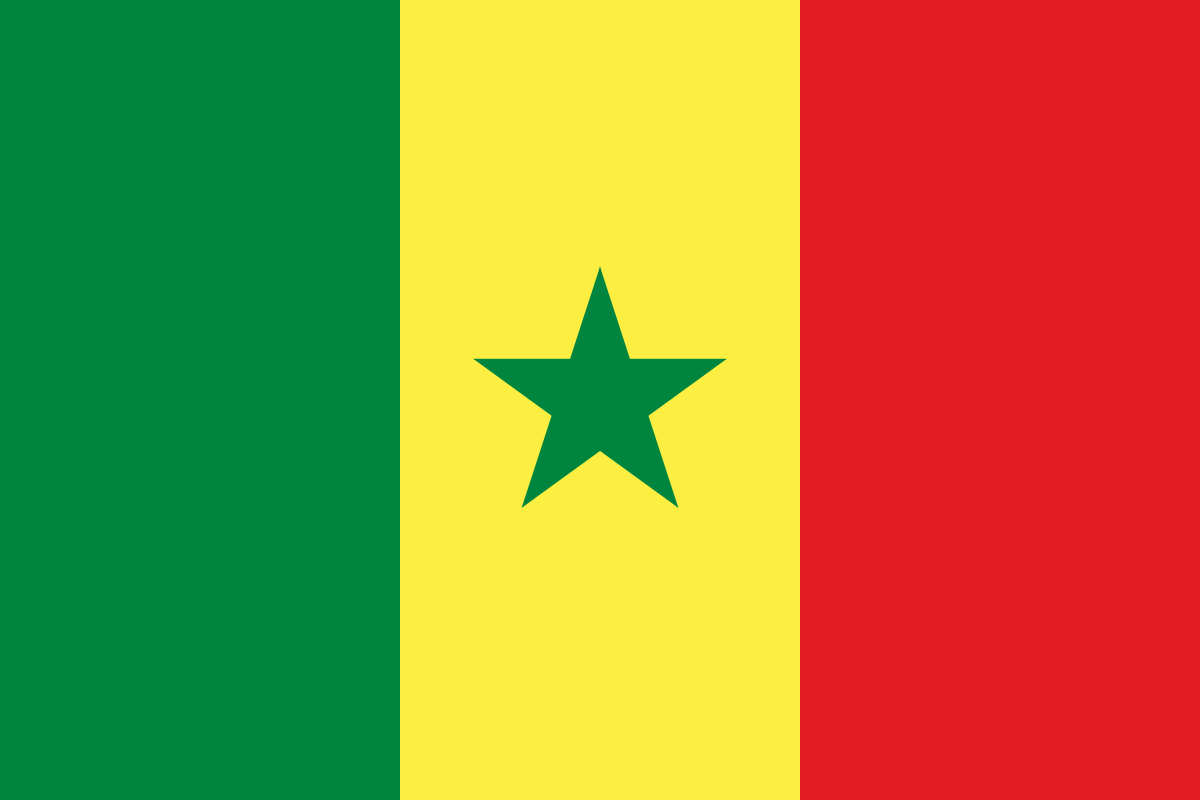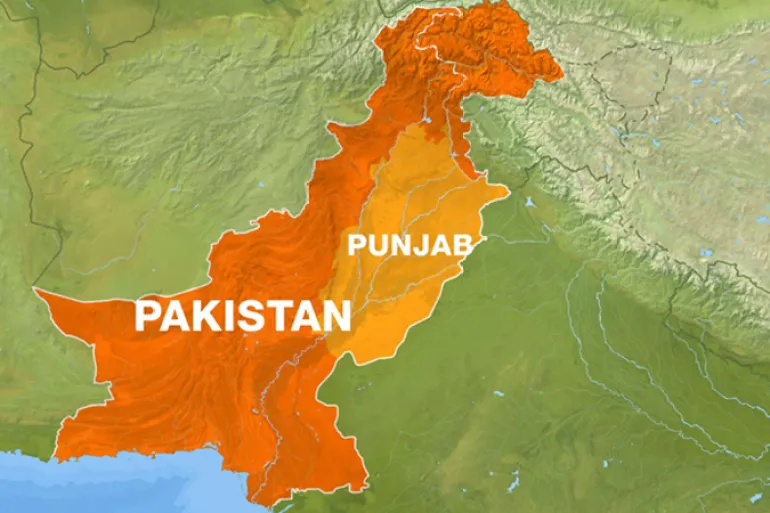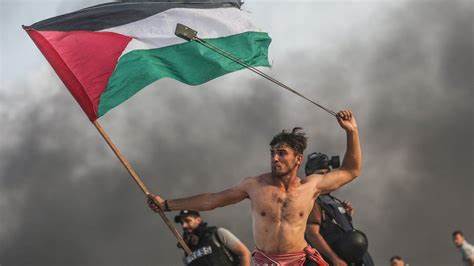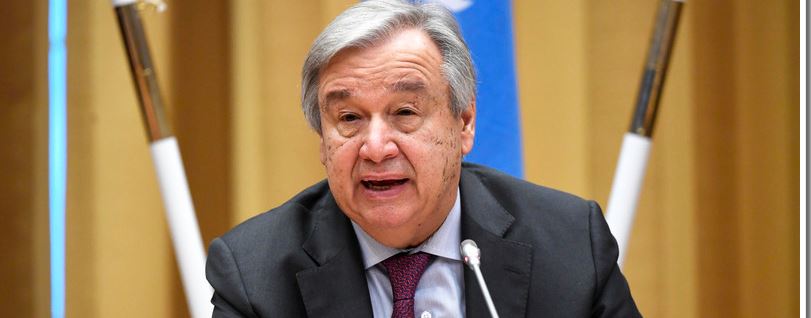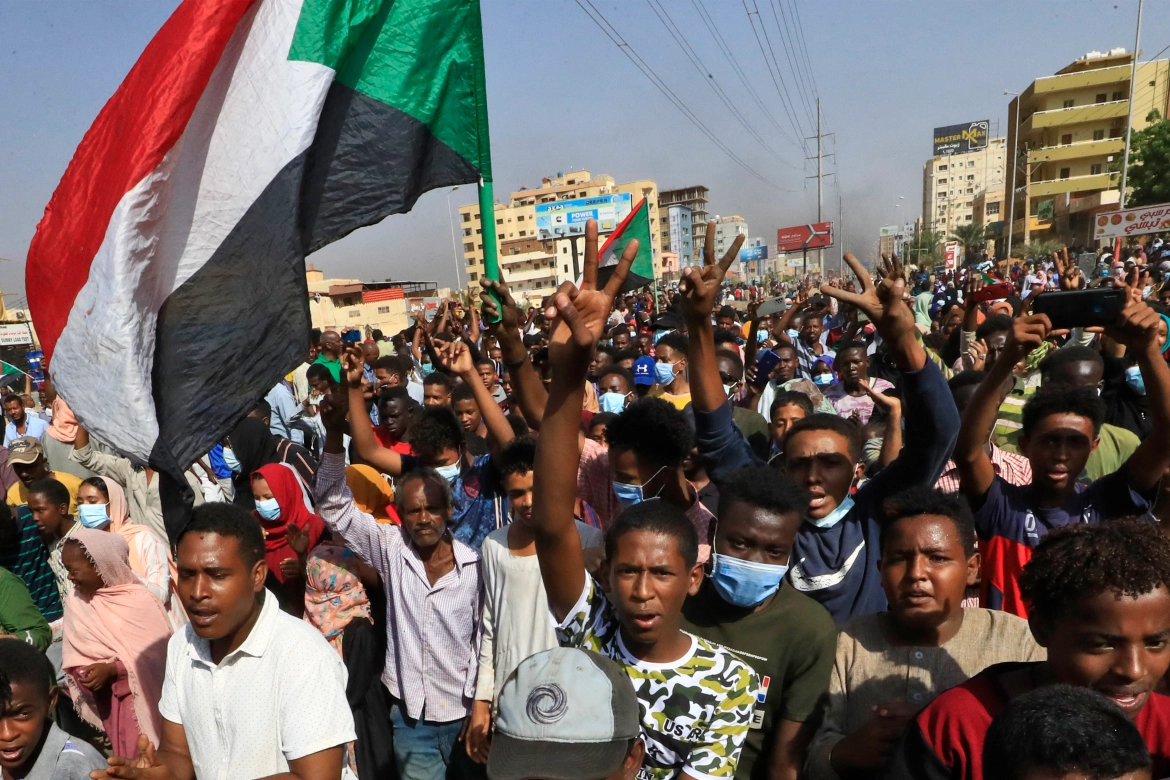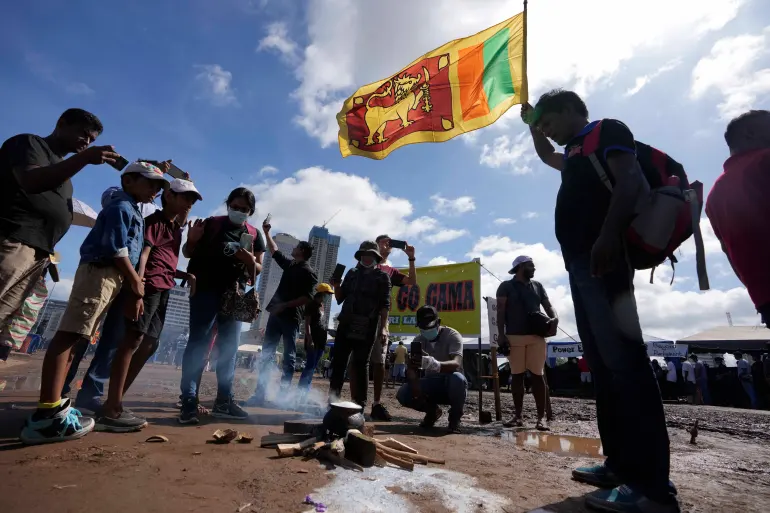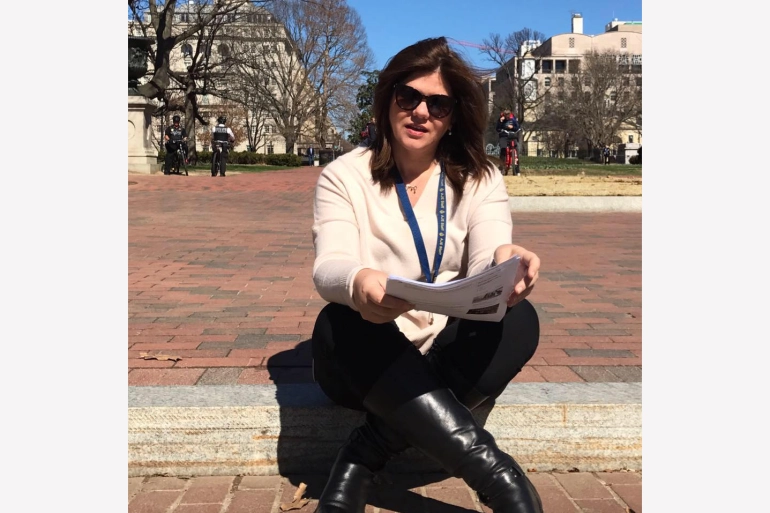![An internally displaced person from the northern provinces of Afghanistan has her blood pressure taken in Kabul, 2021. [Rahmat Gul/AP]](https://liberties.aljazeera.com/resources/uploads/2021/10/1633421056.jpg)
An internally displaced person from the northern provinces of Afghanistan has her blood pressure taken in Kabul, 2021. [Rahmat Gul/AP]
Islamabad – Like many mothers and fathers in Afghanistan today, Zorah* is anxious about her young daughter’s uncertain future.
“I need to find a way to get Asfa back into the classroom so she can eventually go to university and become a very good doctor,” said Zorah, a single mother who returned to Afghanistan from Pakistan in early 2021, unaware of the looming shadow of uncertainty.
Zorah’s worry is nothing new in a country where women and girls have faced consistent barriers to access equal opportunities, education, and employment.
While the circumstances for some Afghan women have improved in the past two decades, recent events mean that the battle to have a voice continues for female teachers, health care providers, aid workers, housewives and breadwinners. There are mounting concerns that the significant advances that have been made will vanish, sweeping away the dreams of children like Asfa.
UNESCO recently reported that in 2018 roughly 40 per cent of all primary school students were girls, a part of a tenfold increase in school enrolment since 2001. Twenty years ago, there were virtually no girls in school in a country of 39 million.
Prior to 15 August, UN Women reported that only 17 per cent of Afghan women were literate, among the lowest rates in the world. This too is now under threat.
In a context where nearly half of the population is reliant on humanitarian aid, the risk of gender-based violence and attacks on women increases. This is especially true for those displaced due to insecurity, drought, and economic instability.
Of more than 630,000 displaced persons so far this year, 21 per cent of them are women, and 59 per cent are children.
The country is on the brink of economic collapse, cash is hard to find and there are fears the flow of remittances will dry up due to instability in the financial sector. Afghanistan needs its women and girls to be fully involved in every aspect of public life and their right to equal opportunities upheld for the recovery process to succeed and to consolidate the modest development gains of the past.
These are the stories of some of Afghanistan’s resilient women and their contributions which need to be preserved:
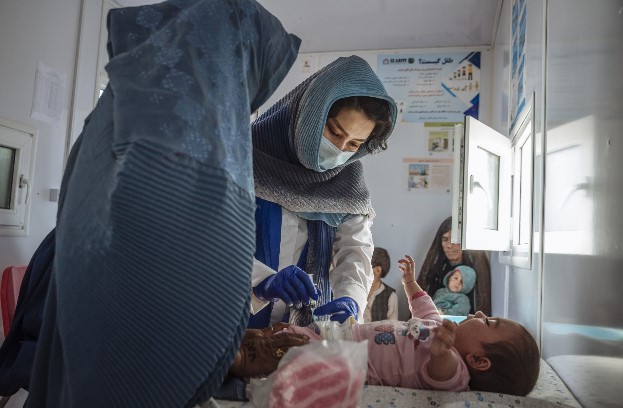
Dr. Mariam* inoculates a new-born infant with regular vaccinations at a camp for 30,000 internally displaced persons in western Afghanistan.
Mariam runs the only clinic available in the camp which provides women and girls with reproductive, maternal and child health care, health education, tuberculosis screening and medicine free of charge.
“Getting the COVID-19 vaccine to places like these is extremely important, especially to women who live in poverty, who don’t have sanitation services, who lack education. They need to be among the first in line,” she said.
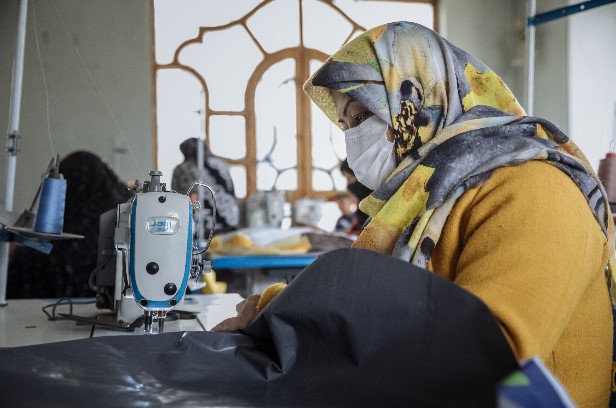
An Afghan woman who recently returned from neighbouring Iran attends a tailoring course at a school for disadvantaged and stigmatized women run by Gulzar, * a young woman entrepreneur.
Most women who come here are the head of their households and have nowhere else to learn new skills in a safe environment. It aims to give them the option of getting jobs or running a business from home in the future.
“They are starting from zero, but tailoring is a skill that anyone can do,” said Gulzar*.
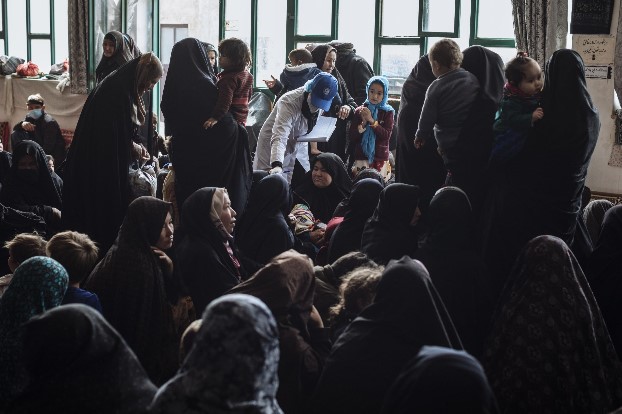
More than 2,500 families live in a marginalized settlement on the outskirts of Herat city in Afghanistan where access to health services is extremely limited. Many of them are women whose husbands have left to find work in neighbouring Iran.
They and their children rely on female health workers to access lifesaving healthcare – including COVID-19 screening and testing, basic medicine, and health education.
A mother and her children cross the street in Kandahar province. The ability of women to move freely is under threat in Afghanistan while drought and unrest across the country leads to greater movement restrictions and increased exposure to harassment in public spaces.
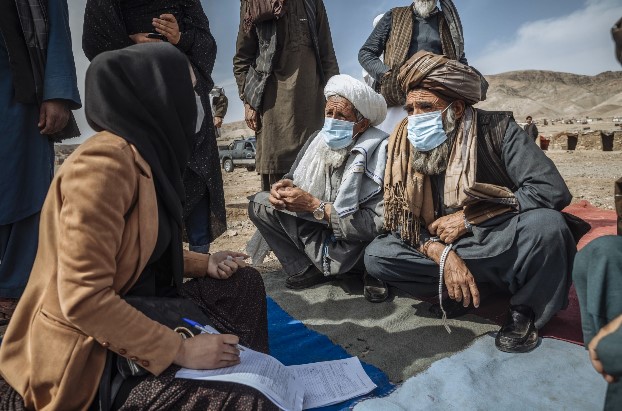
An IOM data collector interviews people displaced by violence prior to the recent surge of conflict in a displacement site in western Afghanistan.
Her consultations with community leaders allow humanitarian actors to better track movement and respond to rising needs in areas of high displacement.
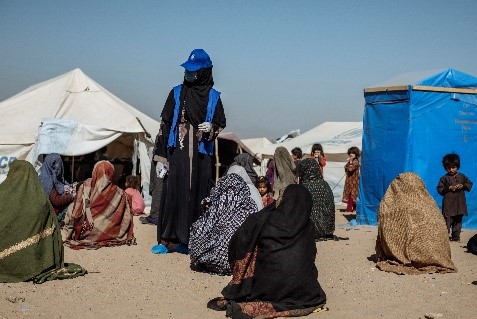
“A big challenge many of the residents in this settlement for internally displaced persons face is that they are living with ten or more family members at home so if someone contracts COVID-19, self-isolating is very difficult. If a patient cannot separate themselves, we instruct the family to use separate items for eating and cooking, to wash their hands and to wear a mask and cover their faces at all times.”
Ferhana* is a health educator on one of IOM Afghanistan’s Mobile Health Teams which serves more than 20 different communities around Kandahar province. She has been conducting workshops about COVID-19, family planning, nutrition and other topics.
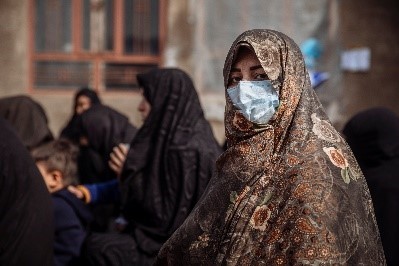
“A few months ago, I got COVID-19 from my husband. I had symptoms like a headache, cough and body aches. I was able to self-isolate in a room separate from other members of my family.
“I’m lucky because my husband has been working as a welder and we have a house with a few rooms, but this is not the situation for most families here. Many have multiple members living in just one room so they cannot help it if COVID-19 starts to spread.
By providing people with information, screening, and some basic treatment, we are at least doing something. If these services cannot continue then people may die.”
Hajira* is a community leader for a women’s group in Herat, Afghanistan. She brings together women in her community to attend health education and COVID-19 screening sessions run by The International Organization for Migration’s Rapid Response Team.
Safa Msehli is spokesperson and communications officer at the International Organisation for Migration (IOM).
- Most Viewed
- Most Popular


